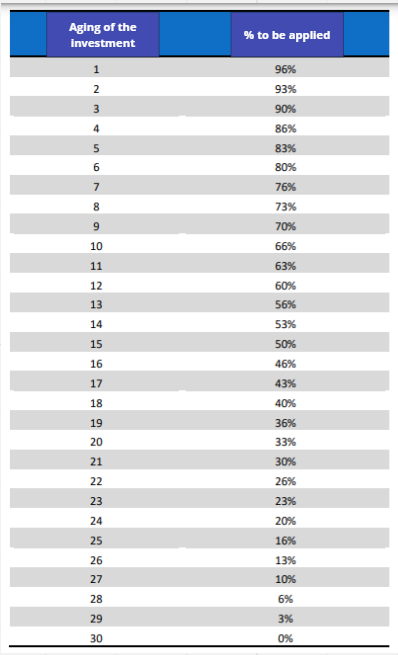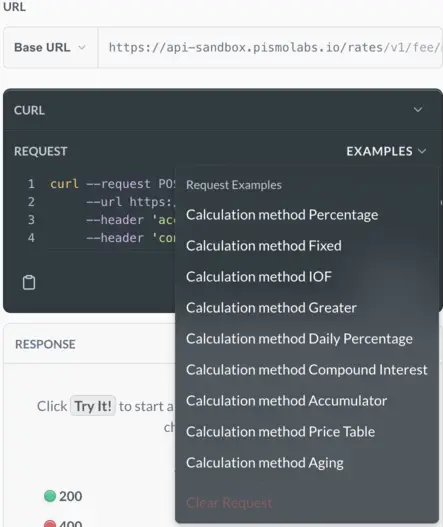Fee models
The Pismo platform enables you to define fee models and apply them to your operations. A fee model is a structure that defines a collection of fees with custom calculations. You can define the method used to calculate the fee, such as a fixed value or a percentage.
Creating a fee model
Use the Create fee model endpoint to create a new fee model. For each model, you specify an array of one or more fee objects (thefees property). This object contains (in addition to other properties) a calculation object, consisting of a calculation_methodand one or more other properties which vary depending on the calculation. The calculation_method is the method the fee model uses to calculate that particular fee.
Pismo supports the following fee model methods (represented by their enums):
FIXED: Applies fixed amount fees to specified transactions.GREATER: Applies a fixed or percentage fee amount to specified transactions depending on which is greater.PERCENTAGE: Applies a percentage fee amount to specified transactions.DAILY_PERCENTAGE: Applies a daily percentage to things like credit card cash advances and other loan type products.COMPOUND_INTEREST: Defines when interest is compounded on loan type products.ACCUMULATOR: Collects totals based on specified transaction types and applies fees on a scheduled basis. It is a special case in that you have to call the Create accumulator configuration endpoint to get an identifier for the configuration you can use when creating an accumulator fee model.PRICE_TABLE: Brazil only. Applies fees to installments - different fees can be applied to different installments.AGING: Brazil only. Determines how fees are calculated and applied to investments over time.IOF: Brazil only. Determines how IOF (Brazilian tax) taxes are calculated for investments.
One fee model
Only one fee model can be applied to an organization, program, or account at a time.
Processing codes
Once a fee model is created, you can apply it to financial operations within an organization , program, or account based on processing codes, which identify an operation, such as purchases or debits. Each financial operation within the platform has its processing code. Some you can configure, while others are fixed in the card network flow. Talk to your Pismo representative to get, or create, processing codes.
Note: The fee is ignored if the operation doesn't match the defined processing codes.
IOF fee model
The IOF tax in Brazil is a tax on financial transactions. It bears some similarity to the capital gains tax in the United States. Like the capital gains tax, it is regressive, that is, investments that are held for a longer period of time are taxed at a lower rate than those held for a shorter period of time.
According to the provisions of Decree 6,306/2007, IOF on securities applies in accordance with a regressive table that varies proportionally to the period of the investment, with such period limited to 30 days. In other words, IOF on securities only applies to the redemption, cession or refinancing of investments before the abovementioned period.
The following details table details how investment gains are taxed over a 30 day period:

IOF fee model example
The following shows an example of how this would be applied.
Investment: $1000
Interest: 1% per day
| Day (Aging) | Income | IOF rate | IOF tax | Income after tax |
|---|---|---|---|---|
| 1 | $10 | 96% | $9.6 | .$ 0.4 |
| 10 | $104.62 | 66% | $69.05 | $35.57 |
| 30 | $250 | 0% | $0 | $250 |
Simulating and testing fee models
Pismo provides fee model simulation endpoints for creating fee models and testing them in the EXT (testing) environment.
Example fee model payloads
You can find sample payloads for each fee model type in the Create fee model endpoint:

Updated 26 days ago